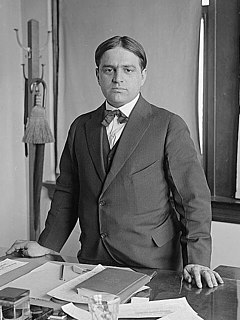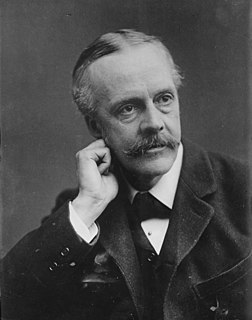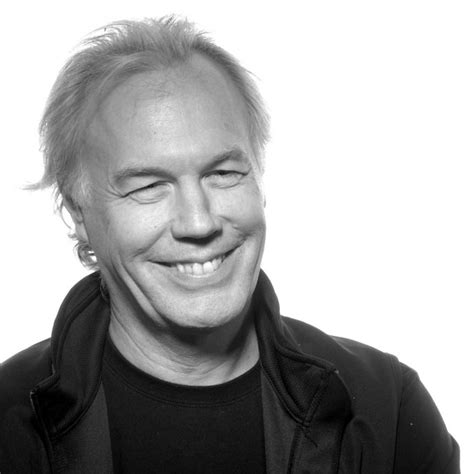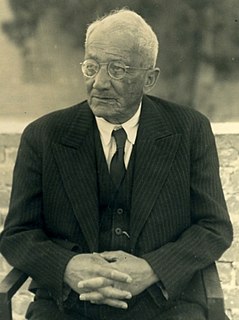Top 92 Appropriation Quotes & Sayings - Page 2
Explore popular Appropriation quotes.
Last updated on April 15, 2025.
Here one must think profoundly to the very basis and resist all sentimental weakness: life itself is essentially appropriation, injury, conquest of the strange and weak, suppression, severity, obtrusion of peculiar forms, incorporation, and at the least, putting it mildest, exploitation - but why should one for ever use precisely these words on which for ages a disparaging purpose has been stamped?
That ideas should freely spread from one to another over the globe, for the moral and mutual instruction of man, and improvement of his condition, seems to have been peculiarly and benevolently designed by nature, when she made them, like fire, expansible over all space, without lessening their density in any point, and like the air in which we breathe, move, and have our physical being, incapable of confinement or exclusive appropriation.
It is obvious that many women have appropriated feminism to serve their own ends, especially those white women who have been at the forefront of the movement; but rather than resigning myself to this appropriation I choose to re-appropriate the term “feminism,” to focus on the fact that to be “feminist” in any authentic sense of the term is to want for all people, female and male, liberation from sexist role patterns, domination, and oppression.
Education may well be, as of right, the instrument whereby every individual, in a society like our own, can gain access to any kind of discourse. But we well know that in its distribution, in what it permits and in what it prevents, it follows the well-trodden battle-lines of social conflict. Every educational system is a political means of maintaining or of modifying the appropriation of discourse, with the knowledge and the powers it carries with it.
Private appropriation of the Earth’s surface, the natural resources, and the means of life is nothing less a crime than a crime against humanity, but the comparative few who are beneficiaries of this iniquitous social arrangement, far from being viewed as criminals meriting punishment, are the exalted rulers of society, and the people they exploit gladly render them homage and obeisance.
Anyone should be able to express themselves in any context. Obviously, there are arguments against appropriation, but it's one thing when someone is doing something for satire or making fun of a culture, but if they respects the tenets of the culture and they want to be a part of that, what could be more beautiful than that?
We have some of the most influential Members of Congress here today, and I do hope that we can get this appropriation for these day-care centers, which seems to me to be money very wisely spent, and also under consideration of the tax bill, that we can consider the needs of the working mothers, and both of these will be very helpful, and I would like to lobby in their behalf.
But science is the great instrument of social change, all the greater because its object is not change but knowledge, and its silent appropriation of this dominant function, amid the din of political and religious strife, is the most vital of all the revolutions which have marked the development of modern civilisation.
Our country, customs, laws, our ambitions, and our notions of fit and fair-all these we never made; we found them ready-made; we but quote from them. What would remain to me if this art of appropriation were derogatory to genius? Every one of my writings has been furnished to me by a thousand different persons, a thousand things; wise and foolish have brought me, without suspecting it, the offering of their thoughts, faculties, and experience. My work is an aggregation of beings taken from the whole of nature. It bears the name of Goethe.
The appropriation of public money always is perfectly lovely until some one is asked to pay the bill. If we are to have a billion dollars of navy, half a billion of farm relief, etc... the people will have to furnish more revenue by paying more taxes. It is for them, through their Congress, to decide how far they wish to go.
It becomes 'one's own' only when the speaker populates it with his own intentions, his own accent, when he appropriates the word, adapting it to his own semantic and expressive intention. Prior to this moment of appropriation, the word does not exist in a neutral and impersonal language (it is not, after all, out of a dictionary that the speaker gets his words!), but rather it exists in other people's mouths, in other people's contexts, serving other people's intentions: it is from there that one must take the word, and make it one's own
In the meantime, what is lost is any sense that the Palestinian resistance to Israeli colonial rule is waged from a situation of occupation or expulsion, that there is a military order that controls the boundaries of what would be a sovereign Palestinian state, that the land on which that state is now thinkable has been radically diminished by an ongoing practice of land confiscation and appropriation.
No matter what anyone may say about making the rich and the corporations pay the taxes, in the end they come out of the people who toil. It is your fellow workers who are ordered to work for the Government, every time an appropriation bill is passed. The people pay the expense of government, often many times over, in the increased cost of living. I want taxes to be less, that the people may have more.
Modern literary theory sees a similarity between walking and writing that I find persuasive: words inscribe a text in the same way that a walk inscribes space. In The practicse of Everyday Life, Michel de Certeau writes, 'The act of walking is a process of appropriation of the topographical system on the part of the pedestrian; it is a special acting-out of the place...and it implies relations among differentiated positions.' I think this is a fancy way of saying that writing is one way of making the world our own, and that walking is another.
Because the bill in reserving a certain parcel of land in the United States for the use of said Baptist Church comprises a principle and a precedent for the appropriation of funds of the United States for the use and support of religious societies, contrary to the article of the Constitution which declares that "Congress shall make no law respecting a religious establishment."
Photography is an investigation of both the outer and the inner worlds. The first experiences with the camera involve looking at the world beyond the lens, trusting the instrument will 'capture' something 'seen.' The terms shoot and take are not accidental; they represent an attitude of conquest and appropriation. Only when the photographer grows into perception and creative impulse does the term make define a condition of empathy between the external and the internal events.
The brilliance here is appropriation: space, form and interface combine to create a Jetsons sound machine. A dream of music access that just hovers, its floating defines a space. The shape seems so obviously sci-fi, but fresh. The function could follow the form. The shape is beautiful and functional-which hits both of the pillars of American Needs right on the head.
I don't think people realize why weaves and the cultural appropriation of black hairstyles are so sensitive. It's deep-rooted. For me, it goes back to high school: I wanted to have the long, flowing hair. So I got a weave. But then I didn't want guys to put their fingers in it - you don't want them to feel your weave.
We need to give out portrayal of ourselves. Every non-Indian writer writes about 1860 to 1890 pretty much, and there is no non-Indian writer that can write movies about contemporary Indians. Only Indians can. Indians are usually romanticized. Non-Indians are totally irrepsonsible with the appropriation of Indians, because any time tou have an Indian in a movie, it's political. They're not used as people, they're used as points.
A good simulation, be it a religious myth or scientific theory, gives us a sense of mastery over experience. To represent something symbolically, as we do when we speak or write, is somehow to capture it, thus making it one's own. But with this appropriation comes the realization that we have denied the immediacy of reality and that in creating a substitute we have but spun another thread in the web of our grand illusion.
Lincoln was a modernizer, so to speak. He believed in economic development. As a Whig before the war he favored what we would call infrastructure spending, government appropriation for canals, railroads, river and harbor improvements, and a tariff to protect industry. He believed in this market revolution that was sweeping across Northern society. He himself benefited from it in his own life.






























